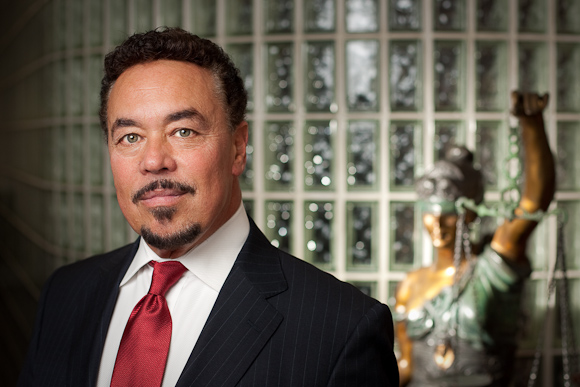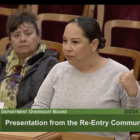First interview is with Bill Fazio
One of the more important and most overlooked races going on in San Francisco right now is the campaign to be the city’s next district attorney.
When Kamala Harris left the post for state office last year, outgoing Mayor Gavin Newsom appointed then-Police Chief George Gascon to take her place. Now, Gascon is running for a full four-year term, but faces stiff competition from four other candidates.
Why does this race matter so much? The district attorney is essentially the county’s top policy maker when it comes to criminal justice, deciding who gets charged with which crimes, and has an impact well beyond the courtroom. Theoretically, at least, a district attorney could choose to not make marijuana possession a local crime, or decide that police can or can’t engage in undercover operations, or decide that police should focus on murders and rapes above all else–all by virtue of being the one who decides whether or not to charge crimes.
So how do the candidates stand on these issues? We’ll be posting interviews with all five of the candidates for district attorney this week. First up, Bill Fazio, a longtime prosecutor and defense attorney who grew up in San Francisco.
Q: I’m going to have you introduce yourself and tell me a little about your background.
A: I was born and raised in San Francisco. I went to public schools here. Graduated from Lincoln High School, went to City College of San Francisco, San Francisco State University, USF Law School. Put myself through law school working as a pressman. I worked for 20 years in the San Francisco District Attorneys Office as a prosecutor. And for 15 plus years I’ve been a criminal defense attorney in San Francisco. I’m running for district attorney because I think by any objective standard, I certainly have the most broad-based, unique experience, having been both a prosecutor and a defense attorney in San Francisco. None of the other candidates have ever stepped into a San Francisco courtroom, let alone tried a case here. I think I bring a very well-balanced approach to the administration of criminal justice, coupled with real San Francisco values.
Q: Why do you think it’s important to have specifically San Francisco experience? Is there something different about this city when it comes to prosecuting cases?
A: Absolutely. For example, San Francisco has effectively not had a death penalty for maybe the last 15 or 20 years. You go across the Bay, Alameda probably uses the death penalty more than any other county per capita, in the state of California. That’s where Ms. Bock is from. San Francisco is manifestly different than any of the other counties. I know now, not only having been a D.A. but having been a defense attorney for the last 15 years, going to counties as a defense attorney—San Mateo, Alameda, Santa Clara. A prosecutor is really supposed to reflect the views of the population and does much better if he or she knows and experiences, feels the San Francisco values.
Q: If you won the election and became D.A., what are some of the first policies you would implement?
A: Well, I would underscore the importance of juvenile justice, which has always been ignored. I mean, I’ve worked as a prosecutor and a defense attorney at so-called “juvie” here in San Francisco. It’s physically separated from the office and the people who work there are separated in spirit as well. It’s never been given high priority. I would make that a high priority in my office because it’s the one area where we can identify people who really don’t belong in the system and get them out of the system. I would professionalize the office. I would concentrate of violent crime, particularly crime on the Muni, which is getting out of control and affects a lot of people who live and work here and don’t always have the ability to step away from a situation that they inexplicably find themselves in. And I would bring enthusiasm to the office. I would encourage the young deputies. I would bring some new energy, which is lacking. Right now we have a district attorney who was appointed by outgoing mayor Gavin Newsom who’s just kind of floundering and is relying on people who should be relying on him for ideas, concepts, and creativity.
Q: A lot of people, when we do criminal justice stories on our station, we notice we get a lot of calls from people saying that the criminal justice system is “broken.” And as the DA’s race in San Francisco, there’s a lot of battles about who can be the biggest reformer and who can bring change to the system. As someone who’s been inside the system for their entire career, do you think you have the vision to step outside of it and bring in new ideas?
A: Absolutely. One of the candidates, Mr. Onek, starts every debate, ever motion, every discussion with, “I’m running for district attorney because the system is broken.” And I say to Mr. Onek, and with all due respect, David, you wouldn’t know if it’s broken because you don’t know how it works. I mean, this is a guy who doesn’t work in San Francisco, had a very, very brief tenure as a police commissioner here in San Francisco, works in Berkeley, in his ivory tower, has never walked into a courtroom as far as I know, has never even had the courtesy of going down and watching a trial and seeing exactly what happens. Sure, it’s great to say “I’m an outsider” but in order to be an outsider, you have to have a little inside connection. I’m an outsider as well. If you look at it this way, for the last 15 years I’ve been a criminal defense attorney working in San Francisco. The system needs to be repaired, it doesn’t need to be chucked out. The district attorney is not a legislator. Mr. Onek wants to change the system, perhaps he should run for Congress or something like that.
Q: Let’s go through a few specific policies. You’ve said you would never seek the death penalty.
A: That’s correct. I have personal experience with the death penalty. In 1981, I tried my first murder case. It was assigned to me two weeks prior to trial. It was a death penalty case with then Public Defender Peter Keen. And he was convicted, he was sentenced to death. 20 years later, that case was reversed, the penalty phase was reversed for judicial error, instructional error by the court to the jury. But well before that case was reversed, I decided that the death penalty was a waste of time and energy. It doesn’t provide anything to the surviving family of the victims. It provides a never-ending litany of appeal after appeal. It doesn’t provide for a closure. Plus there’s always the opportunity of executing an innocent man. And there’s questions and issues about proportionality, how it’s applied. By doing away with the death penalty and replacing it with life without the possibility of parole we satisfy all the needs and protections of society. I would never seek the death penalty under any circumstances.
Q: So let’s talk about strike cases as well, second strike and third strike cases. In what situation is charging a strike appropriate?
A: I think charging a strike is appropriate where the defendant has shown him or herself to basically be a predator on society, who is a danger to the community, who needs to be taken off the streets for as long as possible. I would limit the use of strikes to new offenses which are violent felonies in nature. And would not apply it to something like a burglary or a grand theft, or some of the issues that have questioned the whole appropriateness of third strikes.
Q: How would you handle drug cases — would you charge possession regularly, or send that to community courts? What’s your policy on drugs in general?
A: My policy on drugs in genera l— and actually I’ve talked to the other candidates and mine is more open-minded and liberal and unique than any of them—I would actually entertain a discussion to determine whether or not we should talk about decriminalizing all kinds of drugs except those that are inherently dangerous, like PCP. I’m not saying it should be changed but we should at least open up the discussion. The war on drugs was over a long time ago. If you look at it, drugs won the war on drugs. I would encourage the police department to do away with so-called buy-busts, unless it has become a concern of the community. The police will go in an undercover capacity to communities which haven’t asked for them and they’ll solicit individuals to buy drugs and they’ll swoop up two or three people. I would encourage the police department to stop doing that by basically refusing to prosecute those types of cases. I think they’re a waste of money, time, and they criminalize more people in the community than need to be criminalized. Small amounts of marijuana, that’s crazy. Frankly, San Francisco, the kinds of arrests they make in drugs are not the large cartels that we watch television or movies about. The federal agents handle those cases, San Francisco doesn’t have the capacity to do that. We have to take care of our community, we have to address ourselves to violent issues, we have to identify those individuals who can be rehabilitated and taken out of the system.
Q: So, buy-bust made me think of the Robbery Abatement project that they have going on here as well—and the related bait car. Would you charge robbery abatement cases as well?
A: I would encourage the department to not engage in that type of behavior. When I was in the DA’s office those were called “decoy” cases, where an undercover officer would take the place of a homeless, drunken, intoxicated, or derelict individual, somebody under the influence, slumped in an alleyway and have a couple of dollar bills poking out of his pocket. Sort of tempt somebody to come over and remove the money. When it first started, interestingly enough, they did pick up a bunch of parolees and violent individuals. But later on, it was just making criminals out of people who really had no intent to becoming a criminal. Somebody’s down and out, they see somebody sleeping and he may justify in his own mind, this person is an alcoholic, he doesn’t need the money, he’s just going to drink some more, I need to get something to eat. I’m actually doing him a favor and I’m doing myself a favor. Cases have to be dealt with individually. Like I said, I would discourage that practice, but if it continued I would look at the cases carefully and exercise my discretion.
Q: So another concern that a lot of people in town have is this idea of police oversight. People are skeptical of the Office of Citizen Complaints’ ability to effectively oversee the police department. And of course we’ve had these recent scandals with residential hotels. What could you do as district attorney to make people feel more confident in the police department?
A: Well, tell you one thing, the current district attorney being a former police chief certainly isn’t going to make people feel more comfortable with the police department when he apparently could not even administer his police department because those scandals took place under his watch. One of the candidates is a former police commissioner and there’s problems. I have prosecuted police officers, as a district attorney, I’ve defended them as a defense attorney. And I know the Office of Citizen Complaints is way behind the ball. I was involved in a police so-called misconduct case where it took 7 years to come to a hearing and after a hearing the police commissioners basically apologized to my client. His career was put on hold for all that time. District attorneys office can get more involved in the community and therefore show the members of the community, through my idea of having a district attorney assigned to a police stations, having that district attorney more in touch with me. And giving the community the opportunity of learning for the first time that this district attorney, who was born and lived and raised and works in San Francisco really cares about San Francisco. Isn’t somebody who moved here two years ago, isn’t somebody who’s looking for his career 20 years down the line. Is somebody who started his career as a district attorney and would like to end his career as the district attorney. So I think by bringing that kind of credibility into the office, you’ll encourage people to have more faith in the district attorney’s office. And if police officers are engaging in misconduct, this district attorney would aggressively pursue whatever needs to be done to prevent that, up to and including criminal prosecutions.
This story was a joint effort of KALW News and the San Francisco Public Press.










